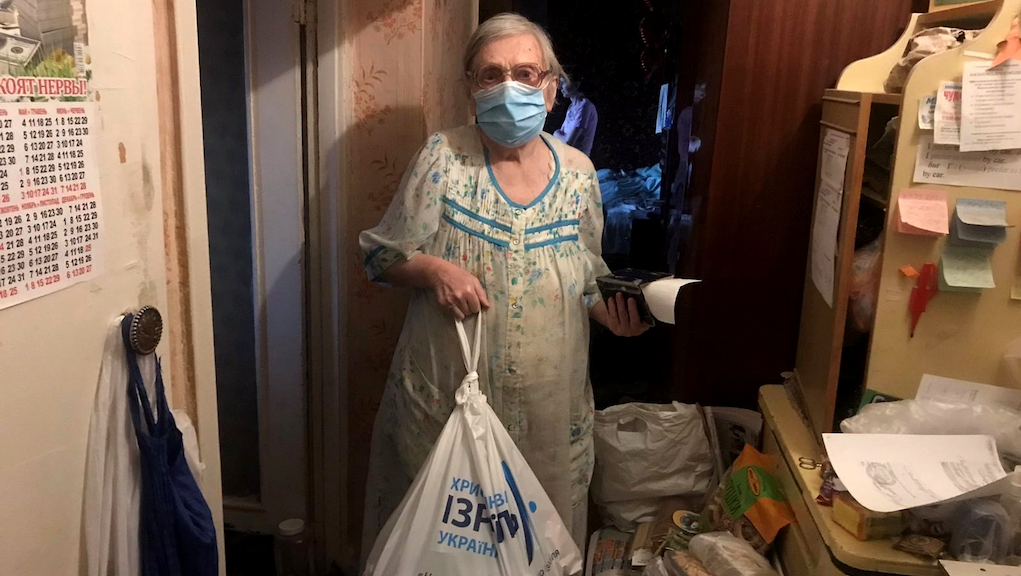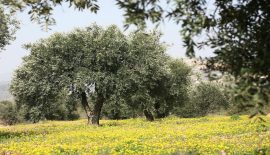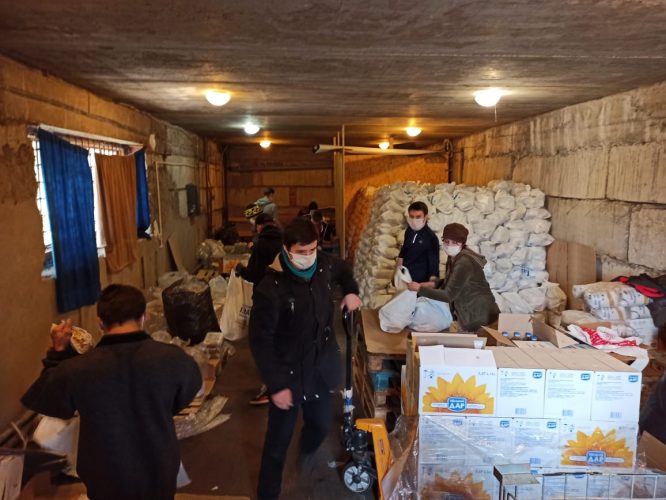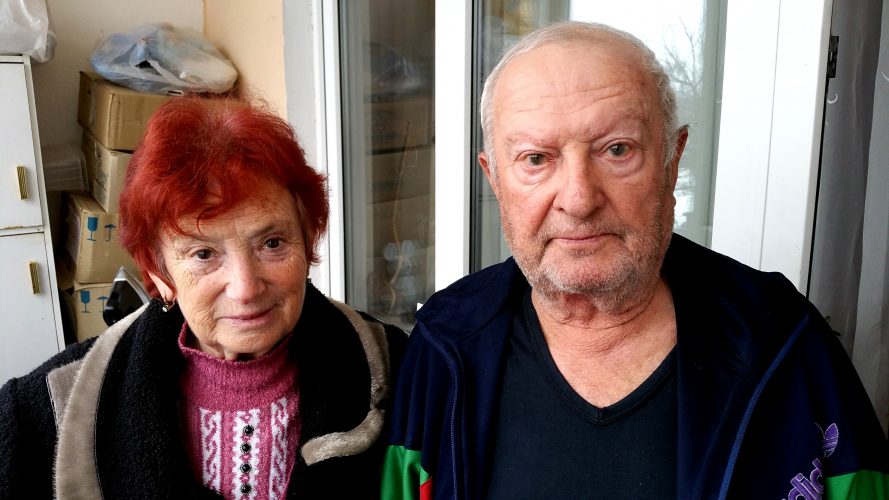5,000 Portions of Manna
“Which plague will be next?” a secular Ukrainian news platform asked recently in a report about the devastating wildfires in the north of Ukraine. The fires had released a 16-fold emission of radioactivity in the troubled Chernobyl region and temporarily made Kiev the world’s smog capital.
The reference to the ten plagues which befell Egypt on the eve of the Hebrews’ exodus from slavery is not too far-fetched. In Jeremiah 23: 7-8 we read of a time when the exodus from Egypt will no longer serve as a point of reference, but rather man will say: “As surely as the Lord lives, who brought the descendants of Israel up out of the land of the north.”
“For the first time since the opening of the Iron Curtain in 1991, the synagogues were closed for Passover this year,” said Koen, who is in charge of the work of Christians for Israel in Ukraine. “Everyone observed the Seder quarantined at home in their Soviet flat” – much like during the first Passover night, which the Israelites were instructed to observe each in their houses, ready for departure. “At every Seder, the family members express their wish, ‘Next year in Jerusalem.’ Maybe this year, for many people here these weren’t just words.”
In the meantime, Koen and his team are taking care of the manna. Since the Corona pandemic reached Ukraine and largely paralyzed public life at the end of March, thousands of Jewish elderly are confined to their four walls, including many Holocaust survivors. This brings back terrifying memories. Those over 60 were instructed not to leave their houses at all, if possible. Public transportation has been curtailed to near-zero. Except a few supermarkets, most shops have been closed, including also the low-cost daily farmers markets.
Food and hope on wheels
“I realised that it wouldn’t take long before the soup kitchens would be closed here as well, putting many Jewish people in a precarious situation of entirely depending on external help,” said Koen as he recalled making initial preparations as early as the beginning of March. “Then we kicked off ‘Meals on Wheels.’ We mobilised all our staff, volunteers, and vehicles. We started out with 100 meals in Vinnitsa, then 200. Today we work with more than 25 soup kitchens all over Ukraine, which prepare and deliver 5,000 kosher meals every other day.”
“Thank you for not leaving us alone in these difficult times,” said Ludmila, deeply touched by another delivery of meals. At age 73, she still works in a hospital in order to afford the medication for her bedridden husband, Boris. “We are so grateful to you, and to God. We couldn’t make it without your help.”
The warehouse of the Baptist Church in Vinnitsa – the packing station for food parcels and an integral part of each working trip – never empties out for more than a few hours these days until the next wholesale delivery arrives.
“We packed more than 10,000 food parcels with our helpers in the last two months, transporting them across thousands of kilometers,” Koen said. This was made possible by the support of many faithful donors.
“Our old people are overwhelmed. They don’t know what to say,” said Rabbi Dan expressing his appreciation. He chairs the Jewish community of Kropyvnytskyi, formerly Kirovograd. “For many recipients, this is more than food. The fact that someone thinks of them gives them a new will to live.”
Valentina, an 82-year old cancer patient in Kiev, is also on the list for a visit by our team member Natalia. “She still cannot say the word ‘Holocaust’ – it still hurts so much. She lost a large part of her family,” Natalia explained. “Since she cannot leave the house, she is also losing precious time for her direly needed chemotherapy.
“Valentina is all alone. We took her under our wings. I bought chicken, eggs, milk, butter, bread, tea and vegetables for her. You should have seen her eyes! When we said good-bye, she said, ‘You didn’t just bring me food. You brought me hope!’”
The image of Passover is ever-present these days, also reminding many of the liberation from the Nazi regime during World War II. 9 May, or Victory Day, is still one of the most important holidays in post-Soviet Ukraine.
It carries a deep personal meaning for many. One of them is Faina, chair of the Bratslav Jewish Community, whose father suffered through unspeakable horrors at the Pechora death camp as a child. “My father always said, ‘This is the highest holiday for me – to think that I survived such terror!’”
Faina transitions to her good wishes without blinking. “I bow before you in deep appreciation for everything you do for us. May God reward you 100-fold. May you be blessed for a thousand generations!”
Emergency help is not limited to Holocaust survivors. “Thousands of Jewish people who want to go to Israel are stuck here, waiting for the strict Corona measures to be lifted,” said Koen. “They have sold everything, sitting on packed suitcases waiting. We help them, too, get through this difficult time.”
Support the Meals on Wheels program!
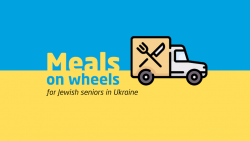 For € 5 or US $ 5 a nutritious meal will be delivered at the home of an elderly member of the Jewish community in Ukraine.
For € 5 or US $ 5 a nutritious meal will be delivered at the home of an elderly member of the Jewish community in Ukraine.
Donate in €
Donate in US $
